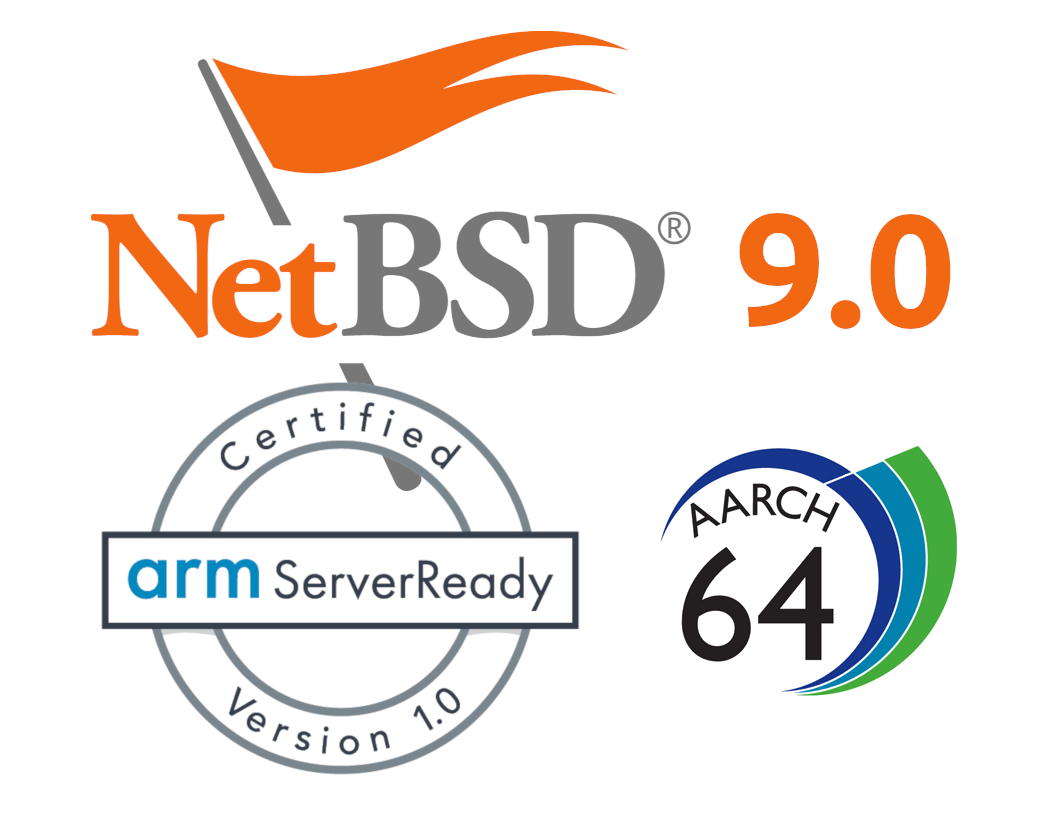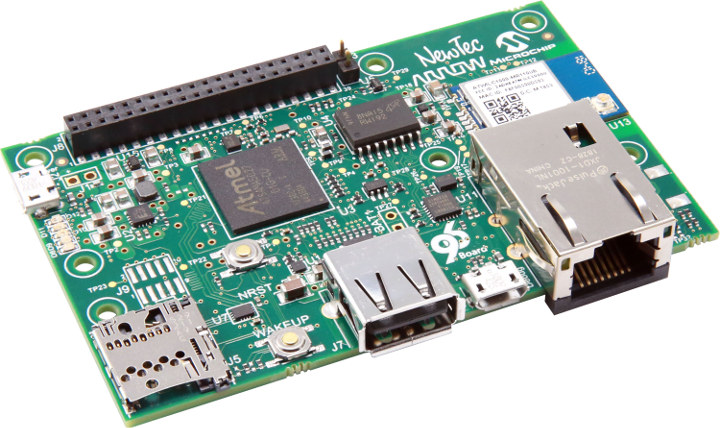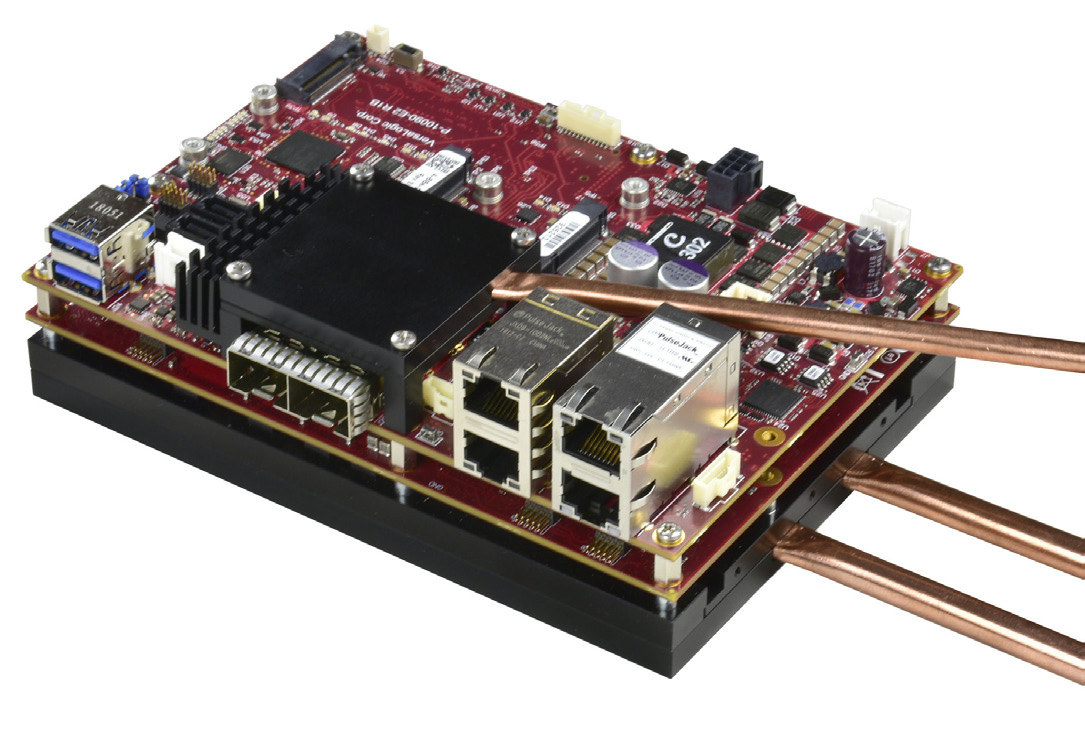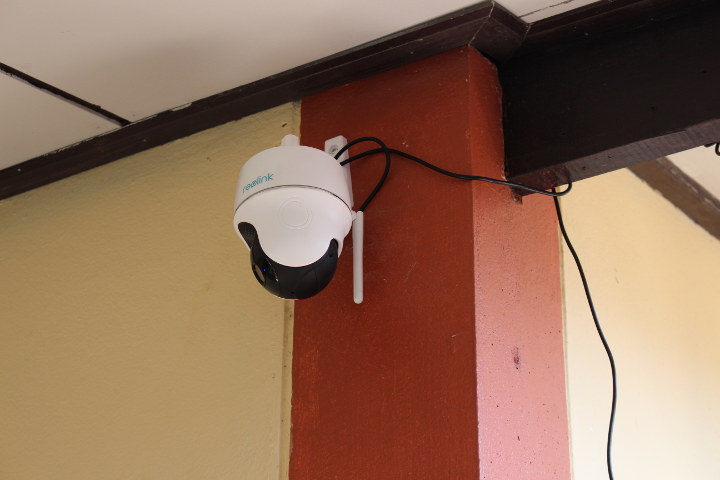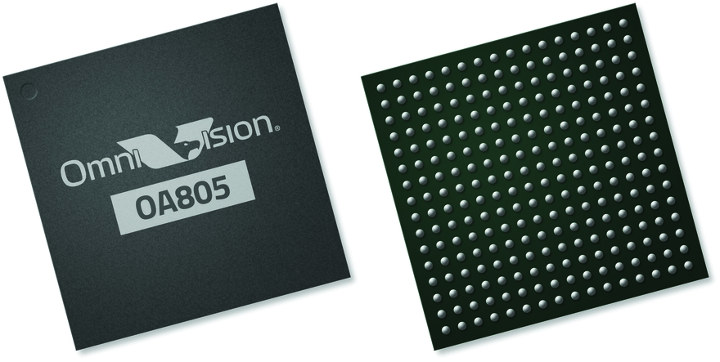I’ve only just upgraded my Xiaomi Mi A2 phone to Android 10 earlier this week, but Google is already preparing for the next version of the mobile operating system, and the company has already released the first developer preview for Android 11 OS. Enhancements for foldables and 5G, call-screening APIs, new media & camera capabilities, and machine learning are some of the improvements brought to Android 11 so far. Some of Android 11 highlights include: Updates of existing connectivity APIs to take advantage of improved 5G speeds. Dynamic meteredness API to check whether the connection is unmetered in order to offer higher resolution or quality for users who don’t need to pay extra for data Bandwidth estimator API to check the downstream/upstream bandwidth without having to poll the network. Pinhole and waterfall screen support – Pinhole screens are the ones with a round opening for the camera, and waterfall […]
NetBSD 9.0 Released with Aarch64 Support, Arm ServerReady Compatibility
Yesterday, we wrote about Raspberry Pi 4 getting UEFI+ACPI firmware for Arm SSBR compliance allowing the board to run operating systems designed for “Arm ServerReady” servers out of the box. NetBSD 9.0 was just released on February 14, 2020, with support for Aarch64 (64-bit Arm) which had been in the works for a few years, and includes support for “Arm ServerReady” compliant machines (SBBR+SBSA). NetBSD 9.0 main changes related to hardware support: Support for AArch64 (64-bit Armv8-A) machines Compatibility with “Arm ServerReady” compliant machines (SBBR+SBSA) using ACPI. Tested on Amazon Graviton and Graviton2 (including bare metal instances), AMD Opteron A1100, Ampere eMAG 8180, Cavium ThunderX, Marvell ARMADA 8040, QEMU w/ Tianocore EDK2 Symmetric and asymmetrical multiprocessing support (big.LITTLE) Support for running 32-bit binaries via COMPAT_NETBSD32 on CPUs that support it Single GENERIC64 kernel supports ACPI and device tree based booting Supported SoCs Allwinner A64, H5, H6 Amlogic S905, S805X, S905D, […]
Arrow Shield96 Arm Linux Board Focuses on Hardware-based Security
Powered by a Microchip SAMA5D2 SiP integrating a Cortex-A5 processor and 128MB DDR2 memory, Arrow Shield96 board has been designed for secure IoT application development with on-board hardware security. Two versions of the SBC are offered: Shield96 Standard reference platform Shield96 Trusted Platform preloaded with the EmSPARK Security Suite software by Sequitur Labs. Both versions come with the same hardware specifications: SiP – Microchip ATSAMA5D27-D1G Arm Cortex-A5 processor @ 500 MHz with 128MB DDR2 Storage – 128MB DDR2 Storage – 128MB (1Gbit) flash, MicroSD card slot Connectivity – 10/100M Ethernet port, 2.4 GHz 802.11b/g/n WiFi 4 via ATWILC1000 “IoT link controller module” USB – 1x USB 2.0 port HW Security – ATECC608 secure element Expansion – 96Boards Mezzanine connector Debugging – JTAG header, serial console via Micro USB port Power Supply – 5V via Micro USB port Dimensions – N/A (CNXSoft note: it’s supposed to be 96Boards compliant, but with […]
Versalogic Grizzly Embedded Server Board is Powered by a 16-Core Intel Atom C3958 Processor
Launched in 2016, Intel Atom Denverton processors are usually found in motherboards for low power servers hosted in data centers as well as in network appliances. But Versalogic Grizzly embedded server board fitted with the 16-core Atom C3958 Denverton processor aims specifically at embedded systems with applications ranging from smart-grid, and smart-city applications, to transportation, security, and defense operations. Versalogic Grizzly (VL-ESU-5070) key features and specifications: Processor – Intel C3958 16-core Denverton server-class processor @ 2.0 GHz System Memory – 4x SO-DIMM sockets for up to 128 GB DDR4 of ECC memory Storage – 2x SATA 3 ports, bootable mSATA socket, bootable M.2 NVMe SSD socket Networking – 2x 10GbE SFP+ ports (copper or fiber), 4x Gigabit Ethernet ports Video output – None, but optional VGA/LVDS mini PCIe card available Audio – No on-board audio, but optional VL-ADR-01 audio interface available USB – 2x USB 3.0 host ports Serial – […]
Register to the Embedded Online Conference for Free Before February 29th
Events such as the Embedded Linux Conference and Embedded Systems Conference take place in the US and Europe every year. There are plenty of talks and it’s certainly good for networking, but you need to travel to the event and the entrance fee to have access to all session costs several hundred dollars if you book early, and over one thousand dollars if you register close to the date of the event. Most ELC/ELCE videos usually end up on The Linux Foundation YouTube channel, but the Beningo Embedded Group and Embedded Related website decided to organize a similar conference happening online and simply called the “Embedded Online Conference“. The conference offers topics about embedded systems, DSP, machine learning and FPGA and will take place on May 20. There are currently 17 talks, but they are still calling for talks so more sessions may be added before the actual event. You’ll […]
Reolink Argus PT Review – A Solar powered Pan-Tilt Security Camera
Last year, I reviewed Reolink Argus Eco solar powered security camera, and I’m still using it to date. It’s working fairly well, although sometimes motion detection will not be triggered, or triggered too slowly so it’s not impossible to miss important footage. The PIR function can be tweaked so maybe it’s just a question of finding the right settings for a given location. Nevertheless, the company has now launched a new model called Reolinkg Argus PT that is very similar to the Argus Ego but with PT (Pan, Tilt) function, and I received a sample for review. Since both models are so similar, I recommend reading Argus Eco review first, as I’ll focus on the differences. Reolink Argus PT Unboxing I received two packages like las time: the camera itself, and Reolink solar panel. The camera comes with a WiFi antenna, a wall-mounting set, a USB cable, and some documentation. […]
OmniVision OA805 4K Video Camera SoC Supports 100 ms Boot Time, 4K HEVC Encoding
OmniVision OA805 Arm Cortex-A5 4K video camera processor is specifically designed for battery operated security and surveillance cameras, including video doorbells, with the ability to encode 4K30p video streams with HEVC/H.265 video codec at very low power consumption. The processor also has a very short boot-up time of just 100ms, meaning it can go from completely powered off to fully functional upon trigger by a motion detection sensor. That short boot time removes the need for standby or sleep mode further lowering the power consumption and allowing the camera to have up to two years of battery life (albeit no mention of battery capacity was made…). OmniVision OA805 specifications: CPU Main CPU – Arm Cortex-A5 processor with NEON, 32KB I-cache, 32KB D-cache Secondary CPU (SPU) – Arm Cortex-A5 processor with NEON, 32KB I-cache, 32KB D-cache Media Processing Unit (MPU) – 32-bit RISC MCU with 8KB I-cache, 8KB D-cache System Memory […]
UL IoT Security Rating System Ranks IoT Devices Security from Bronze to Diamond
Underwriters Labs (UL) is better known for its electrical safety certification programs, but in 2016, the company introduced three UL 2900 IoT security standards that defined requirements of software cybersecurity for network-connectable products. Four years later, you may not have heard many products adhering to UL 2900, and Laurens van Oijen, IoT security solution leader at UL, recognizes that ” the UL 2900 set the bar too high for most consumer electronics/IoT companies” according to a report on CE Pro. So instead the company has launched the UL IoT Security Rating System last May with 5 levels of “security capabilities” ranking IoT devices and products with either Bronze, Silver, Gold, Platinum, or Diamond. Those certifications are aimed to help both manufacturers and developers to improve the security of their solutions, and help consumers make better purchase decisions by knowing the level of security of IoT products by just looking at […]



